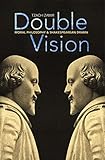Double Vision : Moral Philosophy and Shakespearean Drama / Tzachi Zamir.
Material type: TextPublisher: Princeton, NJ : Princeton University Press, [2011]Copyright date: ©2006Edition: Course BookDescription: 1 online resource : 3 halftonesContent type:
TextPublisher: Princeton, NJ : Princeton University Press, [2011]Copyright date: ©2006Edition: Course BookDescription: 1 online resource : 3 halftonesContent type: - 9780691155456
- 9781400827435
- online - DeGruyter
- Issued also in print.
| Item type | Current library | Call number | URL | Status | Notes | Barcode | |
|---|---|---|---|---|---|---|---|
 eBook
eBook
|
Biblioteca "Angelicum" Pont. Univ. S.Tommaso d'Aquino Nuvola online | online - DeGruyter (Browse shelf(Opens below)) | Online access | Not for loan (Accesso limitato) | Accesso per gli utenti autorizzati / Access for authorized users | (dgr)9781400827435 |
Frontmatter -- Contents -- Acknowledgments -- Introduction -- PART I: PHILOSOPHICAL CRITICISM IN THEORY -- The Epistemological Basis of Philosophical Criticism -- The Moral Basis of Philosophical Criticism -- PART II: PHILOSOPHICAL CRITICISM IN PRACTICE -- A Case of Unfair Proportions -- Upon One Bank and Shoal of Time -- Love Stories -- Making Love -- Doing Nothing -- King Lear's Hidden Tragedy -- Appendix A: A Note on Lear's Motivation -- Appendix B: A Note on Shakespeare and Rhetoric -- Works Cited -- Index
restricted access online access with authorization star
http://purl.org/coar/access_right/c_16ec
Hamlet tells Horatio that there are more things in heaven and earth than are dreamt of in his philosophy. In Double Vision, philosopher and literary critic Tzachi Zamir argues that there are more things in Hamlet than are dreamt of--or at least conceded--by most philosophers. Making an original and persuasive case for the philosophical value of literature, Zamir suggests that certain important philosophical insights can be gained only through literature. But such insights cannot be reached if literature is deployed merely as an aesthetic sugaring of a conceptual pill. Philosophical knowledge is not opposed to, but is consonant with, the literariness of literature. By focusing on the experience of reading literature as literature and not philosophy, Zamir sets a theoretical framework for a philosophically oriented literary criticism that will appeal both to philosophers and literary critics. Double Vision is concerned with the philosophical understanding induced by the aesthetic experience of literature. Literary works can function as credible philosophical arguments--not ones in which claims are conclusively demonstrated, but in which claims are made plausible. Such claims, Zamir argues, are embedded within an experiential structure that is itself a crucial dimension of knowing. Developing an account of literature's relation to knowledge, morality, and rhetoric, and advancing philosophical-literary readings of Richard III, Macbeth, Romeo and Juliet, Othello, Antony and Cleopatra, Hamlet, and King Lear, Zamir shows how his approach can open up familiar texts in surprising and rewarding ways.
Issued also in print.
Mode of access: Internet via World Wide Web.
In English.
Description based on online resource; title from PDF title page (publisher's Web site, viewed 08. Jul 2019)


